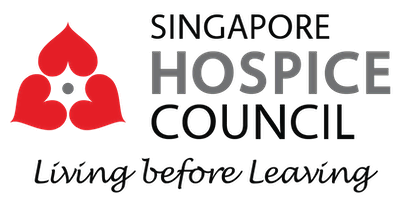Dementia unfolds in stages, each bringing distinct challenges to patients and their families. As memory fades and independence diminishes, palliative care services emerge as a compassionate approach, offering not just medical support but also a listening ear and a helping hand. This gentle and focused care ensures that dignity and personal attention are prioritised at every step.
Dementia in Singapore
A nationwide study in Singapore shows that 8.8% of older adults aged 60 and above are experiencing dementia—translating to about 1 in 11 people. While this reflects a decline from the 10% reported a decade ago, the emotional and practical challenges for those affected and their families remain significant. Navigating daily life becomes more complicated as cognitive abilities wane, highlighting the ongoing need for support and resources to manage these difficulties.
What is Palliative Care for Dementia?
While traditional medical treatments for dementia focus on slowing disease progression or managing specific symptoms, palliative care takes a broader approach, attending to the person as a whole.
So, what exactly is the palliative approach to dementia patients, and how does it address their distinct needs?
Essentially, palliative care for dementia prioritises improving the quality of life for both patients and their families. It goes beyond symptom management to provide holistic care, addressing not only physical discomfort but also the emotional, social, and psychological challenges associated with the condition. This includes managing pain and agitation, offering support for anxiety and depression, and fostering meaningful communication to maintain a sense of connection.
Moreover, hospice care for dementia is provided as patients progress through the end-of-life stage. It emphasises compassionate end-of-life care, ensuring dignity and peace in a patient’s last moments.
Dementia Symptoms and Treatment – How Palliative Care Can Help
Palliative care is an appropriate approach to supporting patients and families to ensure emotional support and comfort, palliative care adapts to meet the evolving needs throughout the dementia journey.
As dementia progresses, patients may experience a range of symptoms, including:
- Pain and Agitation: Prescribed medications are provided alongside calming therapies and environmental adjustments to create a more soothing atmosphere
- Anxiety and Depression: Emotional challenges are managed through counselling, therapeutic activities, and participation in support groups, which help patients feel reassured and connected.
- Confusion and Memory Loss: Structured routines and clear, compassionate communication strategies are implemented to provide patients with a sense of security and stability.
Families are also provided with ongoing education, guidance, and emotional support to help them navigate the caregiving journey with confidence and understanding.
In assessing the progression of dementia, the functional assessment staging tool (FAST) can be utilised. This tool helps understand the various stages of dementia, allowing caregivers to tailor interventions appropriately and anticipate the needs that might arise as the condition progresses.
Challenges of Recognising Pain in Dementia
Identifying and assessing pain in individuals with dementia presents significant challenges due to their diminishing ability to communicate verbally. As dementia progresses, patients often struggle to articulate their discomfort, which can lead to pain going unnoticed and untreated. Instead, they may exhibit pain through behavioural changes such as agitation, withdrawal, or combativeness.
Therefore, caregivers must be vigilant, actively looking for non-verbal signs like grimacing or moaning and noting any unusual behaviours that might indicate discomfort.
Effective Comfort Care
Effective comfort care for dementia hinges on the ability of caregivers to read and interpret subtle cues like facial expressions, movements, and behavioural changes. This understanding allows them to identify discomfort and address it promptly.
A Person-Centred Approach to Palliative and End-of-Life Care
A person-centred approach to palliative and end-of-life care engages deeply with the individual’s specific needs, preferences, and values to shape the care they receive. This approach goes beyond basic medical treatment, focusing on understanding each patient’s distinct circumstances and wishes through detailed care planning. It ensures these preferences guide all decisions, particularly those regarding managing symptoms and providing comfort.
Furthermore, this approach extends emotional and spiritual support to the patient’s families, facilitating a supportive environment that honours the dignity of the patient’s life journey, making their final days as fulfilling as possible.
Navigate the Journey of Dementia with a Palliative Approach

As we continue to understand and adapt to the challenges of dementia care, the need for comprehensive and compassionate support becomes ever more apparent. To assist patients and families in navigating this difficult journey, there are a network of organisations dedicated to providing palliative care services and end-of-life care services. Through our coordinated efforts, individuals with dementia and their loved ones receive the guidance and support they need during life’s most challenging moments.


